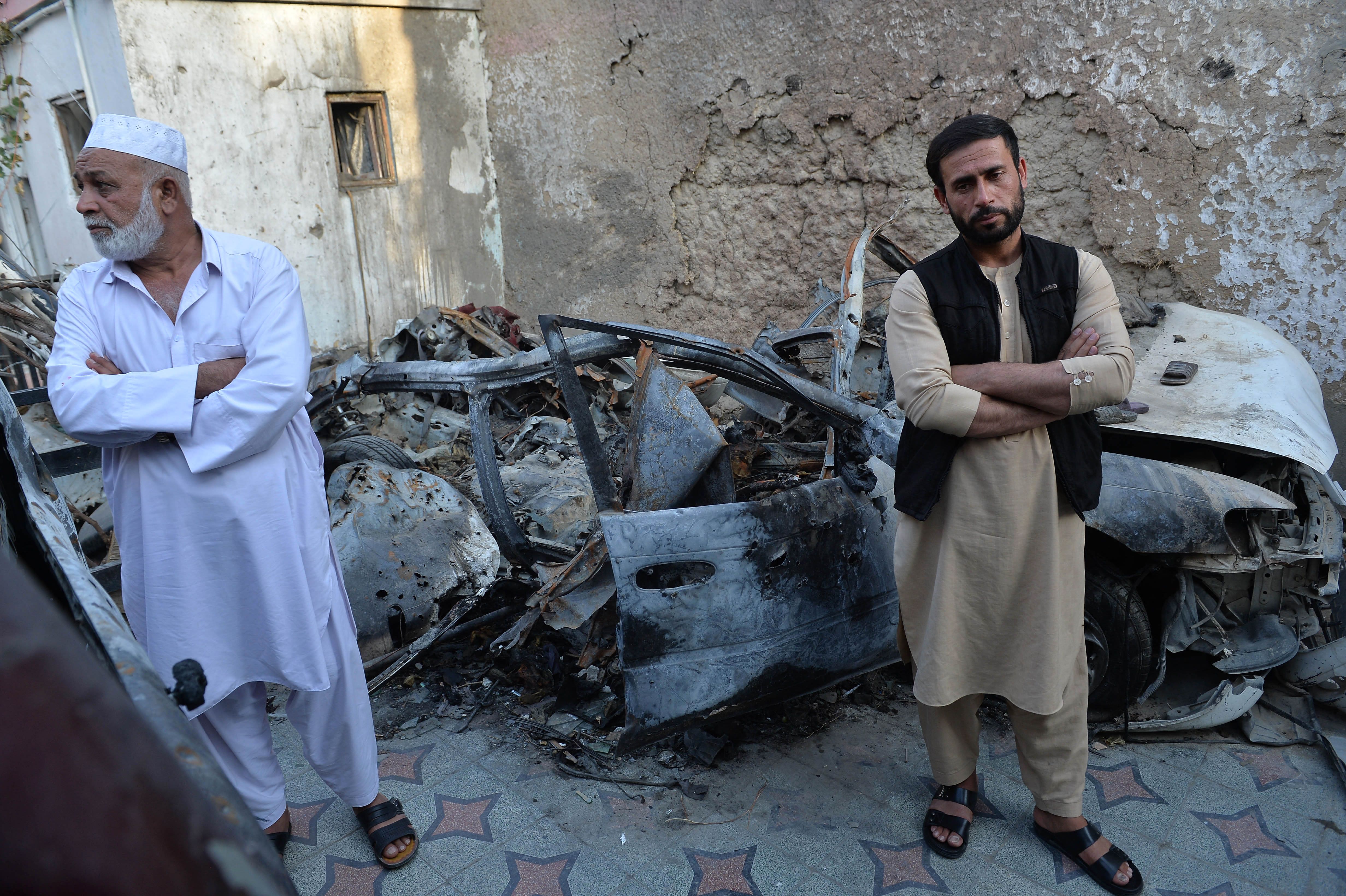
Aimal (R), brother of Ezmarai Ahmadi, stands next to the wreckage of a vehicle that was damaged in a US drone strike in the Kwaja Burga neighbourhood of Kabul on September 18, 2021.
Hoshang Hashimi | AFP | Getty Images
Two top commanders, Central Command General Kenneth McKenzie of the Marine Corps, and Special Forces Operations Command Gen. Richard Clarke of the Army, both recommended no punishment for the personnel involved in the strike, according to two Defense Department officials who spoke to NBC News.
That recommendation came after a Pentagon investigation found that the strike did not violate the laws of war.
Defense Secretary Lloyd Austin, who previously called the civilian deaths a “horrible mistake,” concurred in the decision not to reprimand any personnel for the strike.
The strike came during the chaotic withdrawal of U.S. troops from Afghanistan, which President Joe Biden had ordered in April. The Taliban quickly toppled the Afghan government, even before U.S. troops had exited the country.
WASHINGTON, DC – SEPTEMBER 16: Gen. Lloyd Austin III, commander of U.S. Central Command, testifies before the Senate Armed Services Committee about the ongoing U.S. military operations to counter the Islamic State in Iraq and the Levant (ISIL) during a hearing in the Dirksen Senate Office Building on Capitol Hill September 16, 2015 in Washington, DC. Austin said that slow progress was still being made against ISIL but there have been setbacks, including the ambush of U.S.-trained fighters in Syria and the buildup of Russian forces in the country. (Photo by Chip Somodevilla/Getty Images)
Chip Somodevilla | Getty Images News | Getty Images




